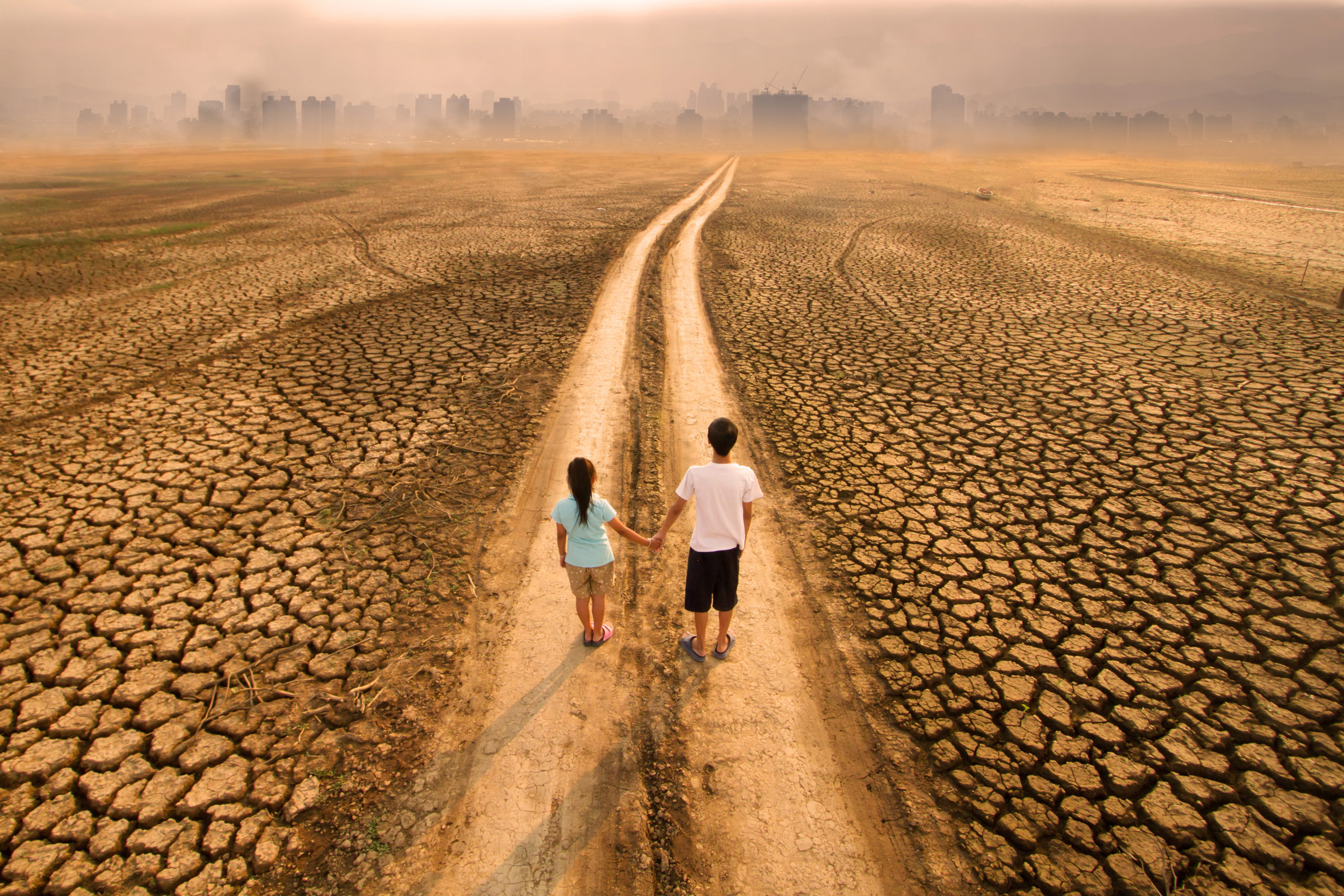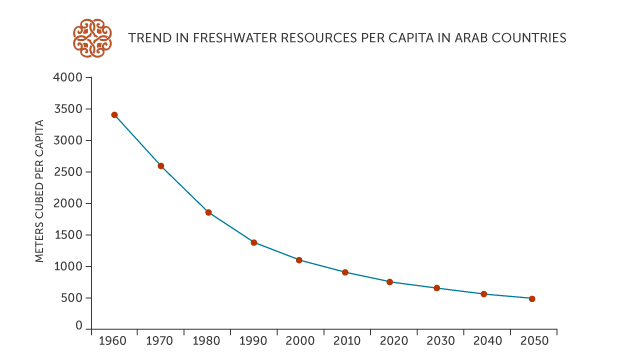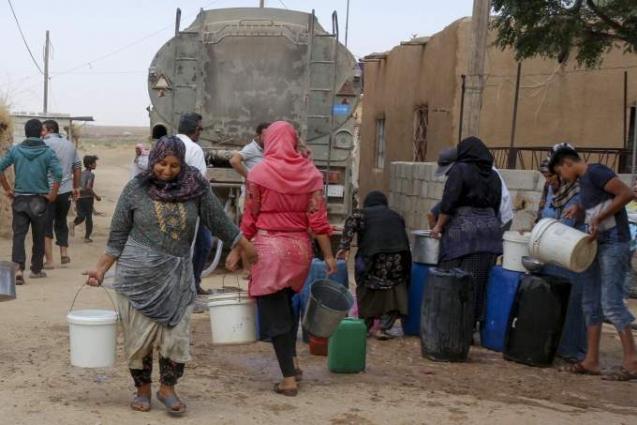With the effects of water scarcity being magnified by global warming in recent years, terrorist and extremist organizations in the Middle East are more frequently weaponizing water to achieve political and economic objectives by controlling populations of people. The climate crisis has increased the spread of desertification and has prolonged periods of drought and famine in arid regions of the world, creating conflict over water (Bodetti, 2019). Fragile states home to terrorist organizations such as Syria, Iraq, Afghanistan, Turkey, and Yemen are among countries most susceptible to water-related terrorism (NewInt, 2020). By taking control of dams, irrigation systems, pipelines, and wells, militant groups are able to suppress communities reliant on those sources for water. Restricting peoples’ access to water has resulted in a humanitarian crisis in the Middle East, displacing millions of people across international borders.
Water scarcity and desertification on the rise due to global warming. Photo: Foreign Policy Research Institute
Impacts of Water Scarcity
By the year 2030, a quarter of the world’s population will live in locations that experience high water stress, such as drought (Dene, 2020). Water scarcity and global warming have increased desertification in dry areas that already deal with water shortages. Essentially, climate change acts as a “force multiplier” that exacerbates the effects environmental issues have on communities (Bodetti, 2019).
Figure 1: Freshwater sources continue to trend downward for Arab countries. (Middle East Institute, 2017)
Syrian Water Crisis
The crisis occurring in Syria today provides an example of how water is being weaponized against a group of people. The Kurdish minority population and rebel groups fighting for independence in Northern Syria have been denied access to water after Turkey, a Syrian ally, dammed the flow of rivers downstream into Syria, shut-down water plants, and bombed water stations. Overall this has reduced nearly 40% of the water flow into Syria and has left 650,000 people without adequate access to water just as the coronavirus pandemic hit (NewInt, 2020).
Syrian refugees must walk miles to neighboring towns in search of freshwater. (UrduPoint, 2020)
A Rise in Terrorism
Terrorist organizations in the Middle East have increasingly turned to water-related terrorism as a means of achieving their goals. It has increased 268 percent from 1970 to 2016 with the highest concentration of events being in the post-9/11 era. Terrorists often target infrastructure as a way to disrupt government facilities and influence populations (Veilleux, 2018). Over the past decade in Iraq and Syria, ISIS has fought the government over control of major dams and water reservoirs. Once in their possession, terrorist groups are then able to exploit populations of people affected by water scarcity (NewInt, 2020). By weaponizing water, terrorists can recruit more members by fulfilling the promise of providing water and other resources. Farmers in agriculture-based economies are most vulnerable to recruitment as a way to support themselves and their families when drought damages crop yield (Bodetti, 2019). Similar tactics are being employed by terrorist organizations all over the world like Al Shabaab in Somalia and Boko Haram in Africa’s Sahel Region (Dene, 2020).
Relation to Comparative Politics
The issue of water-related terrorism relates directly to comparative politics because it occurs on an international scale. Terrorist organizations and oppressive governments have historically been utilizing this war crime, although it has increased in frequency and magnitude over the past few decades. The weaponization of water displaces millions of people across borders into other countries and has created the worst refugee crisis since WWII, with about 5.5 million refugees fleeing from the Syrian crisis alone (Hjelmgaard, 2018). The effects of damming rivers and diverting water flow have long reaching effects across state boundaries. Furthermore, the implications of anthropogenic climate change have worsened the problem of water scarcity for the Middle East. Climate change is a global crisis, and preventative action must occur on an international scale in order to stop environmental degradation in regions that experience it to a greater degree.
Sources
Barton, A. (2020). Water In Crisis - Spotlight Middle East. The Water Project. https://thewaterproject.org/water-crisis/water-in-crisis-middle-east
Bodetti, A. (2019, July 25). Climate Change Expands the Terrorist Threat | YaleGlobal Online. Yale Global. https://yaleglobal.yale.edu/content/climate-change-expands-terrorist-threat
Dene, M. (2020, July 26). Rising Tides of Terrorism. Foreign Policy Research Institute. https://www.fpri.org/article/2020/07/rising-tides-of-terrorism/
Hjelmgaard, K. U. T. (2018, December 19). Syria conflict explained: How did we end up here? USA TODAY. https://eu.usatoday.com/story/news/world/2018/04/09/syria-conflict-explained-bashar-assad/498756002/
Veilleux, J. (2018, May 8). New Global Analysis Finds Water-Related Terrorism Is On the Rise. New Security Beat. https://www.newsecuritybeat.org/2018/05/global-analysis-finds-water-related-terrorism-rise/
Water as a Weapon of War. (2020, June 12). New Internationalist. https://newint.org/features/2020/06/02/water-weapon-war





No comments:
Post a Comment